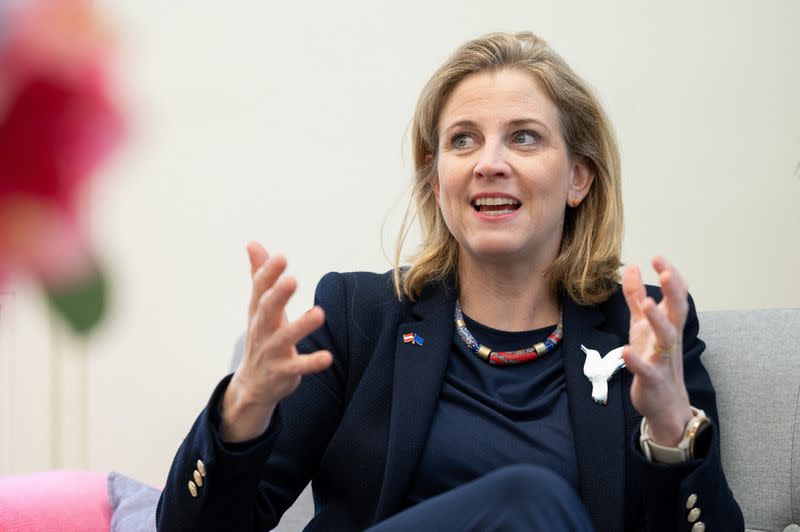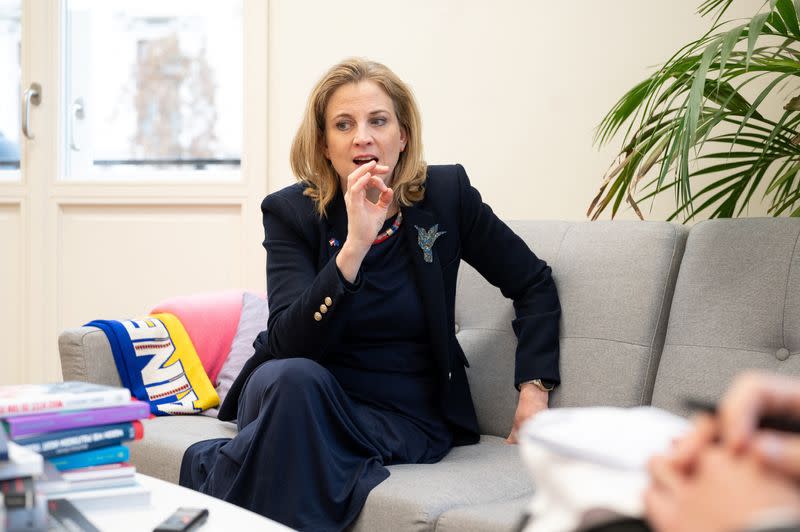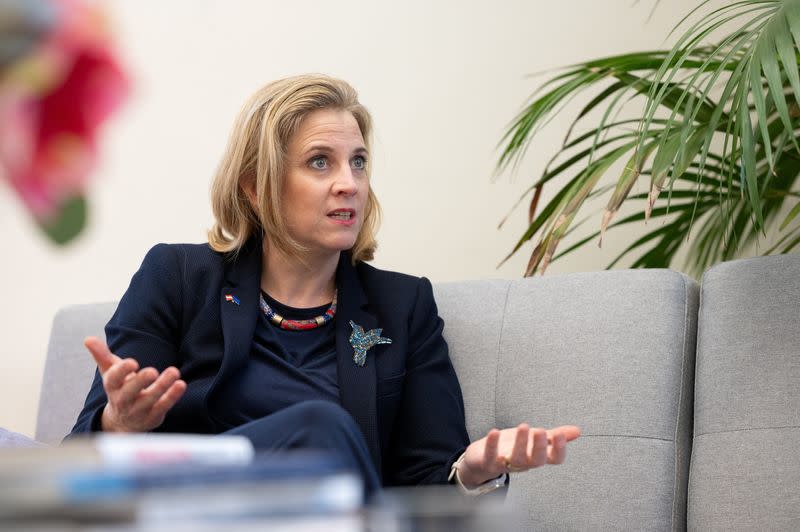Austria must face hard truths to hold off far right, liberal leader says
By Francois Murphy
VIENNA (Reuters) - With an election and tough coalition talks looming in Austria, the leader of the liberal party that could become kingmaker is telling the bigger, older parties they will have to face hard truths to win her backing and keep the far right from power.
The pro-Russia, anti-immigration, far-right Freedom Party (FPO) has a clear lead in opinion polls, capitalising on fears about rampant inflation and frustration with the ruling coalition of conservatives and Greens. The election due before this parliament ends in October will be the FPO's to lose.
But since the FPO is polling around 30% it would need to form a coalition to secure a majority in parliament and govern. Whether it would be able to do that is uncertain, and an alternative could be a tie-up between at least three other parties, possibly including the liberal Neos.
"I tell the inconvenient truth about what we need to do," Neos leader Beate Meinl-Reisinger told Reuters in an interview at her party's offices near parliament.
"If we can't move things forwards, you'll see that the FPO will become even stronger," she said, pointing to a "deep crisis of Western democracies as a whole" with strong or rising far-right parties in the Netherlands, Poland, France, Slovakia, Germany and Hungary.
The Neos, a party founded 11 years ago akin to German Finance Minister Christian Lindner's Free Democrats (FDP) and Britain's Liberal Democrats, are often a lone voice promoting traditionally unpopular ideas, but they have kept growing their share of the vote from 8% in 2019 to around 10% today.
They want to reduce state spending, cut taxes and encourage people to retire later.
They were also alone in calling for a debate on Austria's neutrality after Russia's invasion of Ukraine, arguing that it should be abandoned when solidarity with other European Union member states is concerned. They favour greater EU integration including a European army.
"We can't go on like this," Meinl-Reisinger, 45, said. "We are currently getting poorer. We can't promise young people social advancement anymore. They don't believe they'll have it better than their parents anymore."
POPULISM
Meinl-Reisinger accuses the two parties vying for second place in the polls - the ruling conservative People's Party (OVP) and the opposition Social Democrats (SPO) - of populism.
She has criticised what she sees as the OVP's profligate spending, including on its economic aid packages during COVID-19. She has also lambasted it over corruption scandals, including the prosecutors' investigation that forced then-Chancellor Sebastian Kurz from office in 2021. Kurz denies any wrongdoing.
At the same time, she vehemently opposes the SPO's plan to introduce wealth and inheritance taxes.
"A lot of our positions are evidently hard for the others to imagine," she said. "Now is the point at which we need to see what we can do together. I am convinced that it is possible to work with all parties," she added.
(Reporting by Francois Murphy; Editing by Andrew Heavens)



